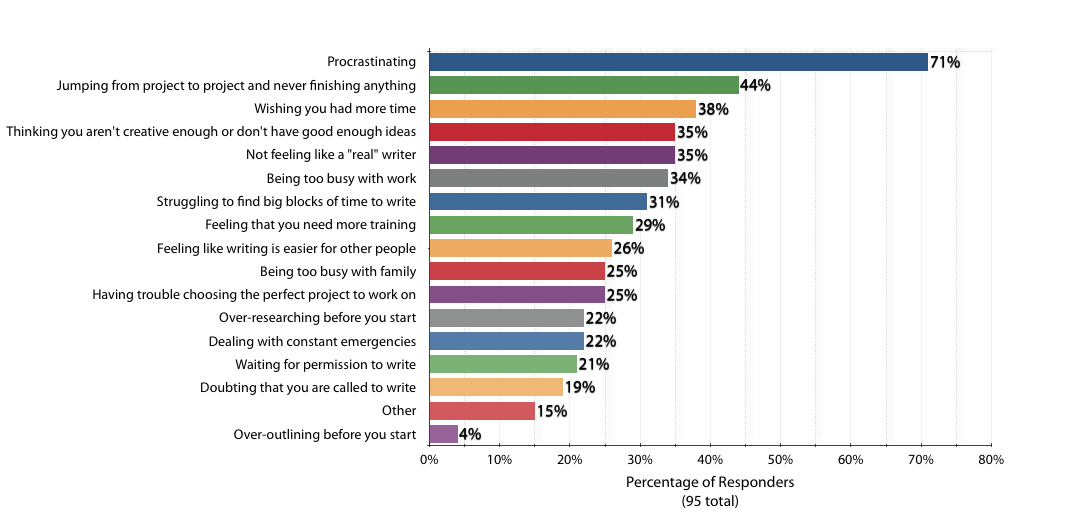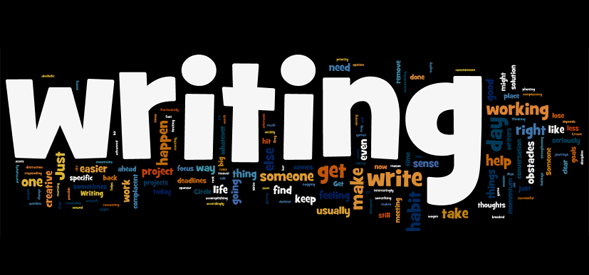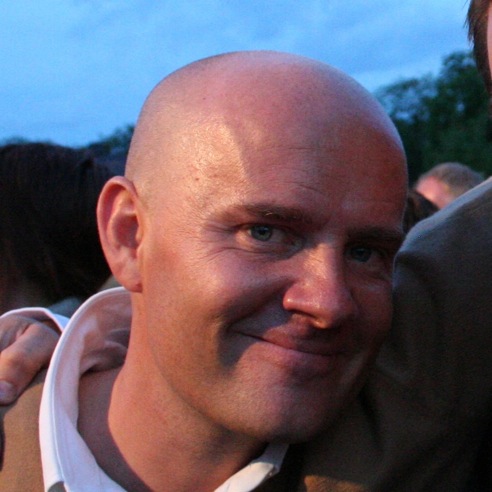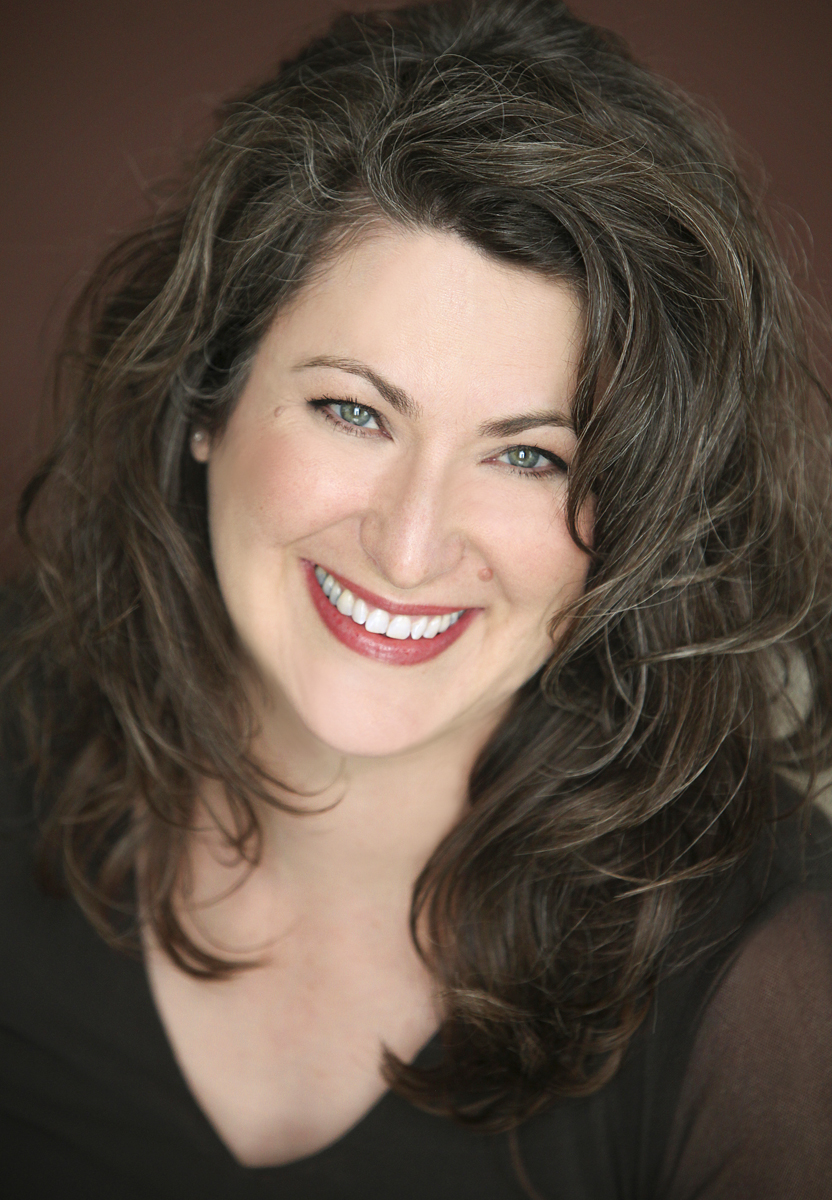Today I’m continuing a series I started last week about choosing writing projects. This is the first post of the series where I’m delving into HOW to choose a project. In the last post I wrote about the issues and challenges that tend to come up for writers around choosing a project and what underlies them (spoiler alert, it’s often some kind of perfectionism!) so that we can start to shift how we’re thinking about it.
More on mindset first
But first, a bit more on mindset before we explore “decision criteria”:
I remember when I started the ProSeries at ScreenwritingU in 2011. I was concerned about picking the “right” project to work on. And I remember that our instructor (Hal) seemed to be relatively unconcerned about my choice, which at the time I found somewhat disconcerting. Hindsight being 20-20, however, I can see now WHY he was unconcerned. He knew that — especially for someone like me, a then newbie screenwriter — it didn’t actually matter that much what I chose. It would be a learning script, and if I continued screenwriting, which is of course an assumption of the program, it would be one of dozens of scripts I would write.
It’s hard to hold that in mind when we’re choosing projects, especially because of the things we talked about last time (“It’s so much work!” “What if I choose the wrong one?!” etc.), but if we take an eagle’s eye view of our writing careers we can see that yes, this next project will be just one of many projects we work on in our lifetimes. Will it be a best seller or a runaway hit? Maybe, maybe not. But you can see that if you try to choose on that basis alone, you might get somewhat paralyzed.
Enter criteria
Hence the concept of criteria.
When you use criteria to select a project, you systematically narrow your field of ideas using a list of criteria that you choose in advance to help you make the decision.
Everyone has to choose their own criteria, there’s no point in me telling you what they “should” be. I can, however, share with you some of the criteria I use and think about (and why) so that it might spark your thoughts about your own.
(Side note: I’ll write about OTHER methods to choose projects in the rest of this blog series, including some intuitive methods. So if this particular method doesn’t resonate for you, not to fret, there’s more to come.)
Okay, so on to project selection using criteria.
Start with where you are right now
The first step is to think about where you are in your writing career and what you are hoping to accomplish.
For instance, are you trying to:
- Establish yourself as a writer?
- Figure out your brand?
- Choose your first project?
- Build an audience?
- Break into Hollywood?
- Something else?
I think you can see that each of these intentions have different outcomes, and so a project to fulfill them would ideally be picked with a specific intention in mind. And since the project you might choose to build an audience may be very different than the one you might choose if you are working on figuring out your brand, you’ll use different criteria depending on what you are hoping to accomplish in order to narrow the field.
Have a list of projects
Also, assuming you’re a writer with a ton of ideas you’re trying to pick from, you’ll want to have a list of projects that you can refer to as you make your decision. (If you’re a writer who is struggling to come up with an idea — any idea! — that’s a different issue that we’ll have to tackle another day.)
Choose your writing project criteria
Here are some ideas I’ve used for writing project decision criteria (and I like to frame mine as questions). Although I’ve listed quite a few possible criteria, I ask my clients to come up no more than three to five criteria to when we make their project choice. More than that and they just get overwhelmed.
I’ve listed more than three to five here to give you some ideas of various criteria I’ve used at different times to get you thinking about possibilities for yourself.
- Would I be thrilled to write this project? First off, I want to think about my attachment to the project. As long as I’m committing to a long form project, I want to ENJOY myself. This is my life after all, and it’s too short to waste doing things I don’t feel excited about. (You can also use the question from The Life Changing Magic of Tidying Up, “Does this spark joy?” as an alternate here.) This is about thinking about your level of passion, curiosity, interest, and attachment to a particular idea.
- Does this project have a high level of clarity for me? Even though I love most of my project ideas, certain projects have more clarity for me. I know what they are about. I know why I want to write them. I know who the characters are. I know what the basic story is. If I don’t know those things, perhaps I still have a good sense of the concept and feel that it will be relatively “easy” to develop, as opposed to something that has a lot of blank spots in it and feels hard and/or overwhelming.
- Is this project marketable and/or high concept? Going in, I want to have a sense that the project will have legs in the marketplace. This can mean a number of things, for instance, that there’s a trend or market interest in a specific genre, or that there’s kind of a built-in audience with a high level of demand for a specific kind of project. Personally, I’m not that thrilled about chasing market trends because I know that they can change and/or that I might not catch the wave at the right time (I’ve read that what’s on the marketplace book-wise right now was bought 18 months ago). However, I do like to know that there’s a potential audience for what I’m writing, like time travel (my favorite!). I also like to know that I have a high concept if at all possible — a project that people instantly “get” and want to know more about.
- Does this project fit within my brand? Although there’s a lot of resistance to branding, it’s particularly helpful in the screenwriting world. This is because it helps potential buyers of your work recognize you in the field of writers. Without a brand, you’re just one of many in a sea of thousands and thousands of writers. With a brand, people start saying things like, “Oh, yeah, I know a sci-fi writer, you should talk to Jenna Avery.” So it behooves me to stick with projects that support and enhance my brand.
- What’s the potential budget for the project? If I’m picking a screenplay to work on (as opposed to a novel), I’ll look at the potential budget for the project. I do this because I want to flesh out the slate of work I have available. Right now, I have two spec scripts that are on the high end for budget, so for my next spec script, I’ll want to choose something in the low- or mid-range. Other writers might choose to always write high or low budget. Remember, I’m not suggesting that everyone should do what I’m doing here, but I’m rather sharing the things I think about with the hopes that they spark ideas for you.
- Does it lend itself to adaptation? As a sci-fi screenwriter, I’m looking at writing novels and novellas that lend themselves to the screen, in that they are cinematic stories, structured like screenplays, and lend themselves to future adaptation for the screen. I’m exploring this option because oftentimes it’s easier to pitch a screenplay in Hollywood (especially a big budget script) that already has a loyal audience in book form.
- Does this project challenge me as a writer and will it help me grow my writing skill set? I like to choose projects that help me grow. For instance, writing low budget sci-fi brings a whole new set of challenges (it has to be more character- than plot-driven). I had a fabulous time writing a low budget script on assignment over the summer simply because it pushed my edges as a writer and expanded my writing repertoire significantly.
- Will this project be easy to write? and/or Will this project be fun to write? On the other hand, sometimes when I’m on the more tired side, perhaps because I just pushed myself to write a complex, dark, or heavier project, it’s nice to pick the next one to be on the “easier” or lighter side (notice I said easier, not easy) to create a sense of balance for myself.
Notice that most if not all of the questions have fairly simple Yes/No answers, they either are or are not true. And again, I wouldn’t use all of these, I’d pick three to five to use, depending on what I was hoping to next accomplish in my writing career.
From here, I’d narrow my field of questions, then go over my list of potential projects, and see which of them meet the criteria. Then I’d sort them into an order and see which of them, if any, naturally rise to the top and/or fit the most criteria.
![]()
Over the next post or two, I’ll write about putting projects in order of “best fit” to “least best fit for now” and a few more intuitive approaches to project decision-making. In the meantime, let me know what you think about using criteria to choose your project. Can you see any questions or criteria emerging for you that might help you choose what’s next for you?
Download the Newly Updated Guidebook Version Here
There’s an updated version of this post and the two others in the series, assembled into a How to Choose Your Next Book (Or Screenplay) Guidebook with an overview of the process in a PDF format, along with a workbook in a PDF and RTF format. You can import the RTF into Word or Scrivener and work with it there.
Click the image below to download the Guidebook now.










 When he joined the Circle all the way from Sweden, Rikard Bergquist had been working on his novel intermittently, struggling to find enough time to write and to move past the outlining and preparation stage into writing actual New Words. And he had a little two-year-old daughter at the time too! (She’s three now.)
When he joined the Circle all the way from Sweden, Rikard Bergquist had been working on his novel intermittently, struggling to find enough time to write and to move past the outlining and preparation stage into writing actual New Words. And he had a little two-year-old daughter at the time too! (She’s three now.)








